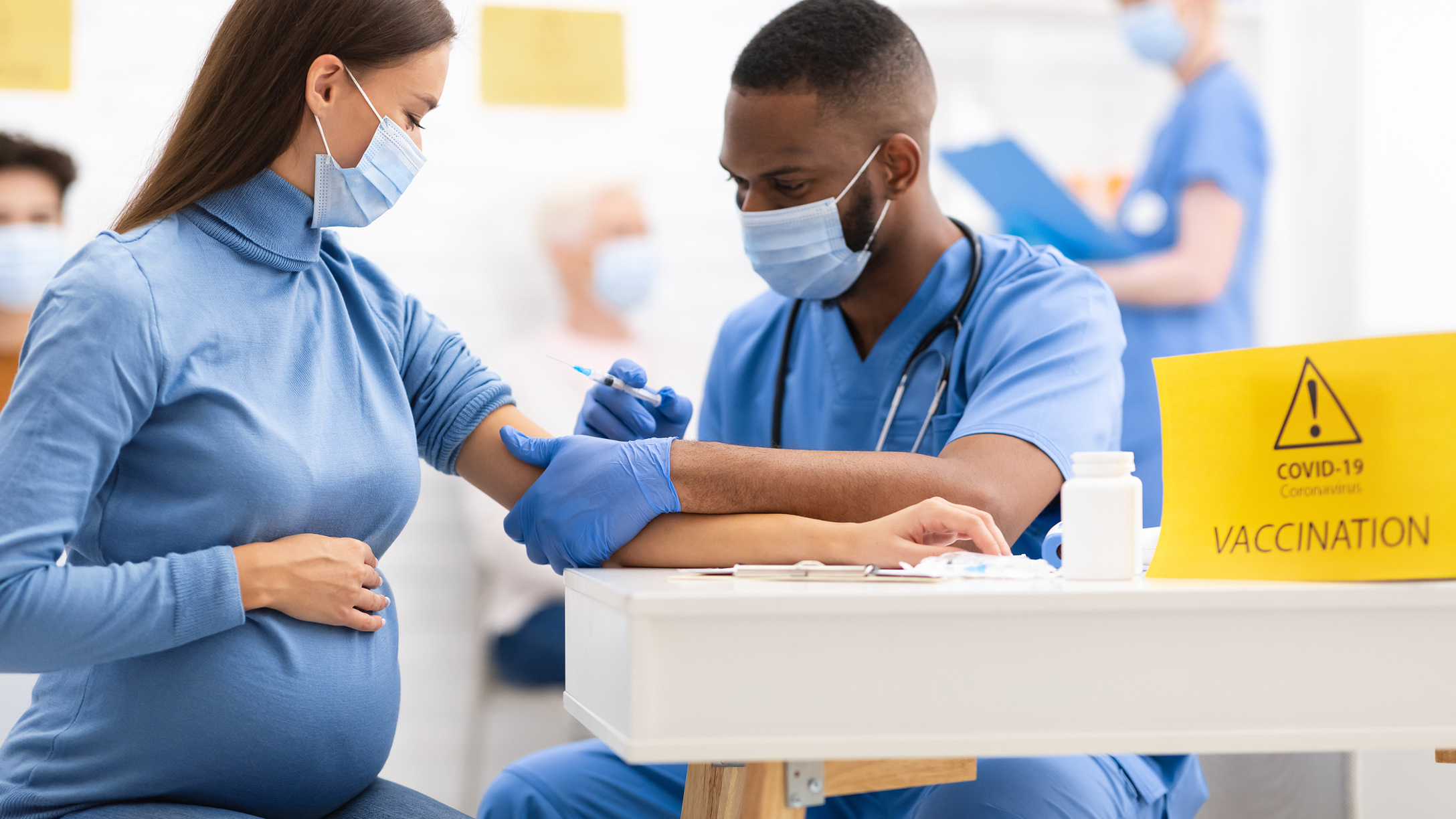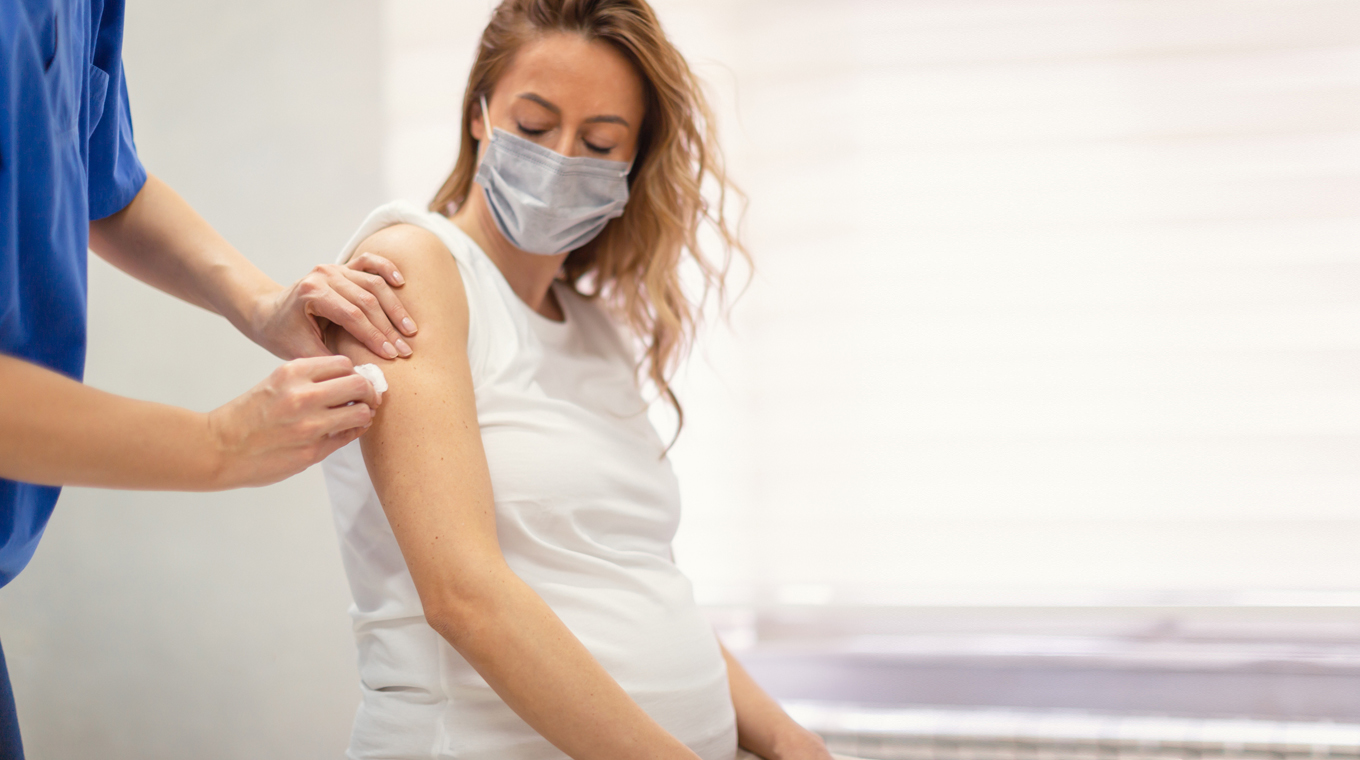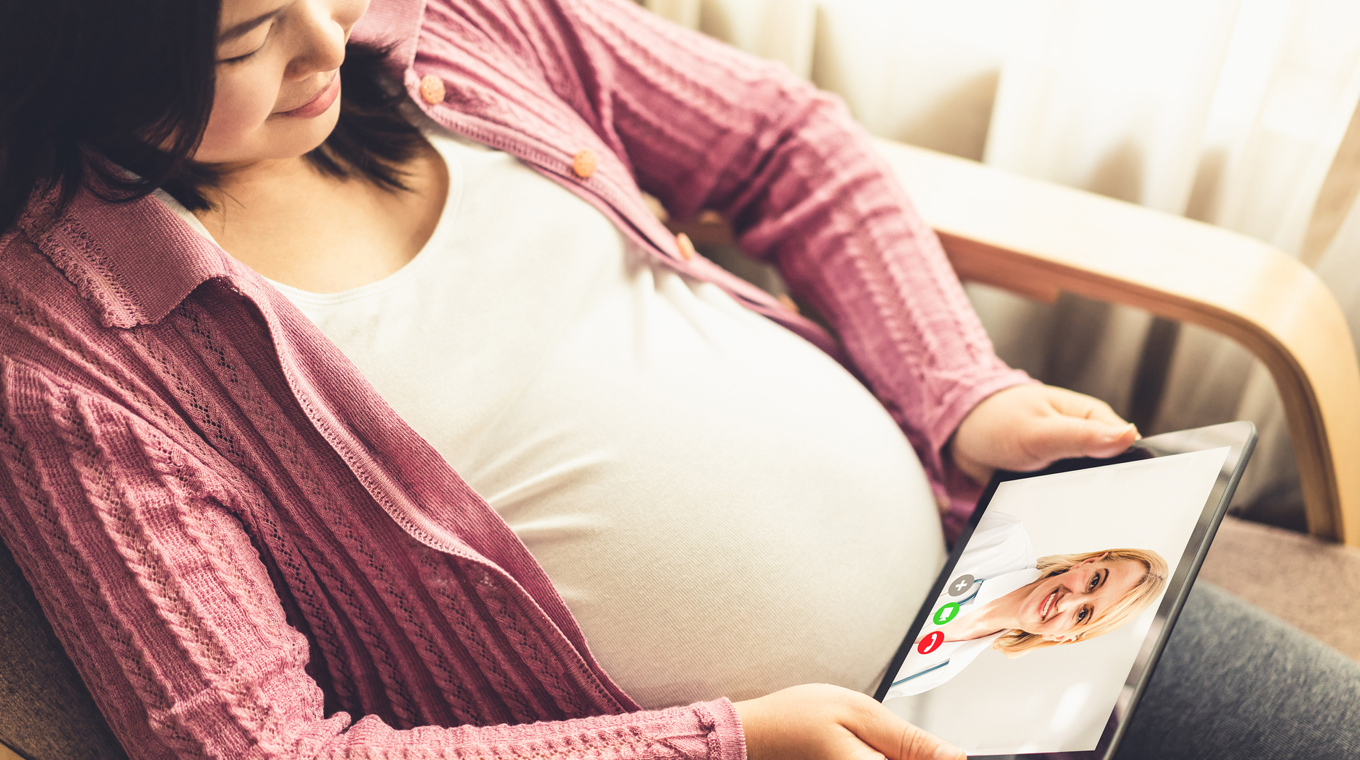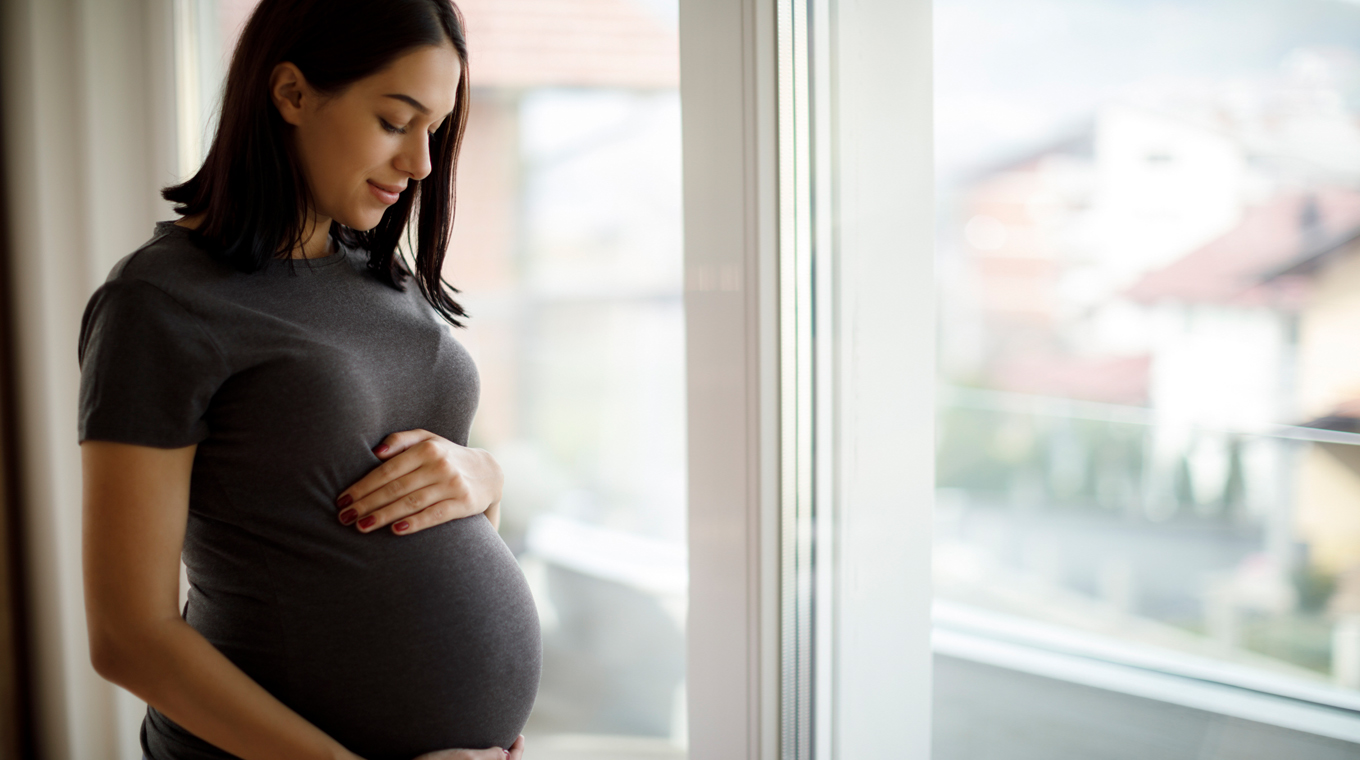
In this article
With COVID numbers hitting record density levels in some parts of the county, many people are looking forward to getting one of the two vaccines available. But the expedited process that these vaccines went through has left a lot of concern over side effects — in particular, COVID vaccine pregnancy risks. If you’re considering getting the vaccine but are pregnant or plan on becoming pregnant, here’s what you need to know based on the limited data available.
*covid vaccine pregnancy
Vaccine schedule: Understanding the basics

According to the CDC, the two COVID-19 vaccines available and recommended are the Pfizer-BioNTech and Moderna’s COVID vaccine. Side effects of either vaccine include a fever, chills, headache, swelling, and tiredness. These are considered normal side effects as the body is developing the protection needed against the virus.
The vaccine schedule is different depending on which vaccine you get. Both vaccines require two doses. The Pfizer vaccine requires a second dose 21 days after the first dose, while the Moderna vaccine has a 28-day interval.
Both vaccines are a new type of vaccine called an mRNA vaccine that teaches our cells how to make a protein to trigger a desired immunite response within our bodies. Typically, this means producing antibodies that protect us if the real virus enters our system.
According to the CDC, information about whether either COVID vaccine is safe for pregnancy is limited. While studies on pregant women are planned, they have not yet been done. The Moderna vaccine showed no safety concerns to pregnant rats who received the vaccine and Pfizer studies are ongoing.
Risks of COVID vaccine side effects vs risks of COVID

As a woman who is pregnant or looking to become pregnant, understanding what is the bigger risk is at the heart of the debate. The risks of COVID vaccine side effects is still considered uncharted waters. We simply don’t have enough data to know if they are completely safe. We do know that pregnant women are at increased risk of becoming severely ill if they contract COVID-19.
By severely ill we mean they are more likely to result in an ICU admission requiring mechanical ventilation and potential death compared to non-pregnant women. Additionally, pregnant women risk preterm labor if they contract COVID compared to healthy pregnant women.
Doctors close to the matter see the lack of data on one hand but warn against the risk of COVID. “The medical societies (ACOG and ASRM) are saying that the vaccine should not be withheld from pregnant women. Translation: women can choose to get it but they are not giving a specific stance. Thus far, there isn’t any information to suggest that the vaccine has an impact on infertility or to the fetus but there isn’t much data at this time," fertility specialist Kaylen Silverberg, M.D. told Mom.com. "However, there is data that says pregnant women who get coronavirus are at higher risk for respiratory issues.”
Obstetricians and gynecologists also also voice concerns over the complications pregnant women may experience if they contract COVID-19. According to Dr. Laura Riley of Weill Cornell Medicine and Dr. Denise Jamieson of Emory University School of Medicine, around 1% of pregnant women in the U.S. required ICU care after contracting COVID-19, and out of every 1,000 pregnant woman who become infected, 1.5 have died. “Thus, it is critical that pregnant persons have the opportunity to be vaccinated if they would otherwise meet the criteria for vaccination,” the doctors wrote in Annals of Internal Medicine.
Based on the current data, it appears that the potential side effects of the vaccine are worth the risk compared against the known risks of getting COVID.
Making a decision: Is the COVID vaccine safe for pregnancy and fertility

For those wondering if the COVID vaccine causes infertility or pregnancy issues, there is no current data to support this. But having no data doesn’t mean that anyone can say they are safe or unsafe. It is up to each woman to speak to her doctor and ascertain what the real concerns are for her situation.
While both vaccine manufacturers continue to monitor women who were in the clinical trials who became pregnant, its simply too early to draw any conclusion. This means that your concerns of getting COVID will be the driving force behind your decision. Millions of women are facing this choice, and it is not an easy one regardless of how far along you are. Christine Lipinsky is 20 weeks preganant and told Mom.com, “I’m torn but ultimately feel that I’ve been isolating and limiting my risk.”
That insight says a lot. If you aren’t going to get the vaccine, you need to be vigilant about isolating and reducing the potential exposure to the virus.




